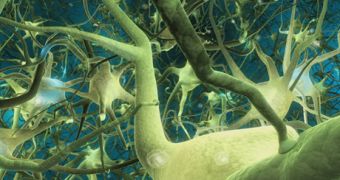This week's edition of the journal Nature Methods witnessed the publication of a new study arguing that, given the right “incentives,” the run-of-the-mill cells usually discarded as part and parcel of human excreta can be made to shift into so-called neural progenitor cells.
Seeing how these neural progenitor cells are basically the forefathers of brain cells, it comes only logical that the study's conclusions can be summarized as follows: once collected, urine can successfully be used to engineer brain cells.
In order to turn the cells found in human excreta into viable neurons, the researchers resorted to a technique referred to as cell reprogramming.
Thus, they collected the kidney epithelial cells and altered their genetic makeup to such an extent that they became induced pluripotent stem cells (iPS cells, for short).
These iPS cells are best described as “blank canvases,” meaning that they can grow to become whatever type of living cell the specialists want them to become.
The laboratory-based experiments carried out throughout this study indicated that it only took about 12 days for the base cells to shift into iPS cells.
When transplanted into the brain of newborn rats, these iPS cells only needed about four weeks to mimic their surroundings and begin looking and acting more like neurons, the Scientific American explains.
The specialists who looked into this possibility of using urine to make brain cells explain that, unlike the neurons made from stem cells, their cells are less likely to cause tumors when transplanted into living organisms.
It is their hope that these human excreta-based neurons can successfully be used for both scientific purposes, and perhaps even to develop treatments intended to cure or improve on the living conditions of people suffering from neurodegenerative diseases.
“This could definitely speed things up. We work on childhood disorders, and it's easier to get a child to give a urine sample than to prick them for blood,” commented on these findings James Ellis, a medical geneticist presently working with Toronto's Hospital for Sick Children in Ontario, Canada.

 14 DAY TRIAL //
14 DAY TRIAL //